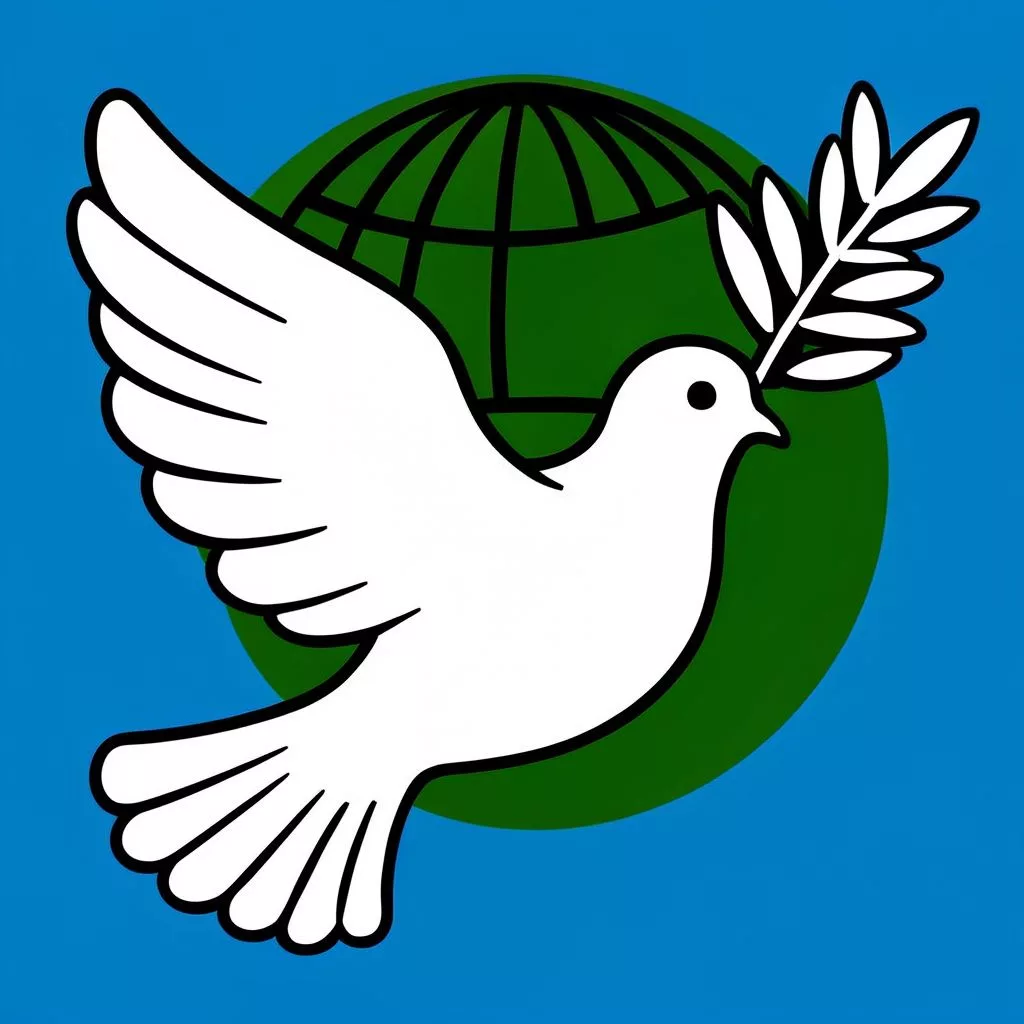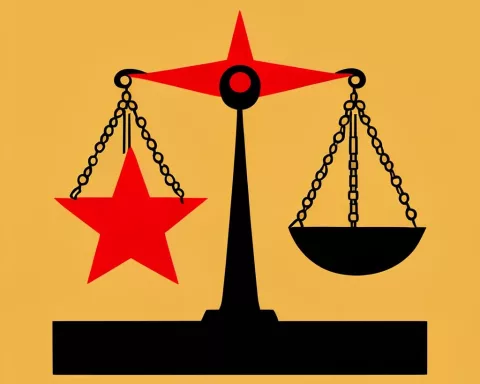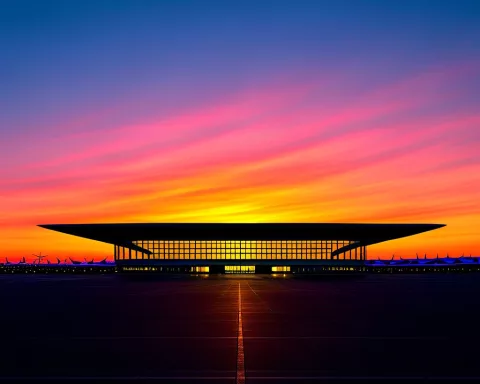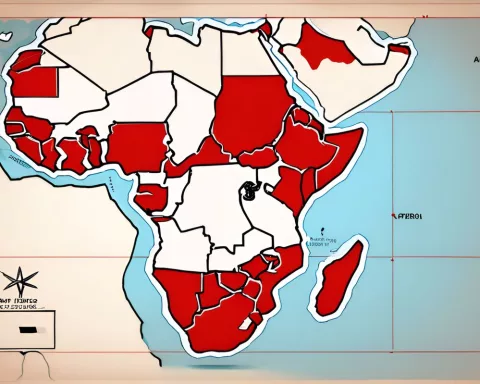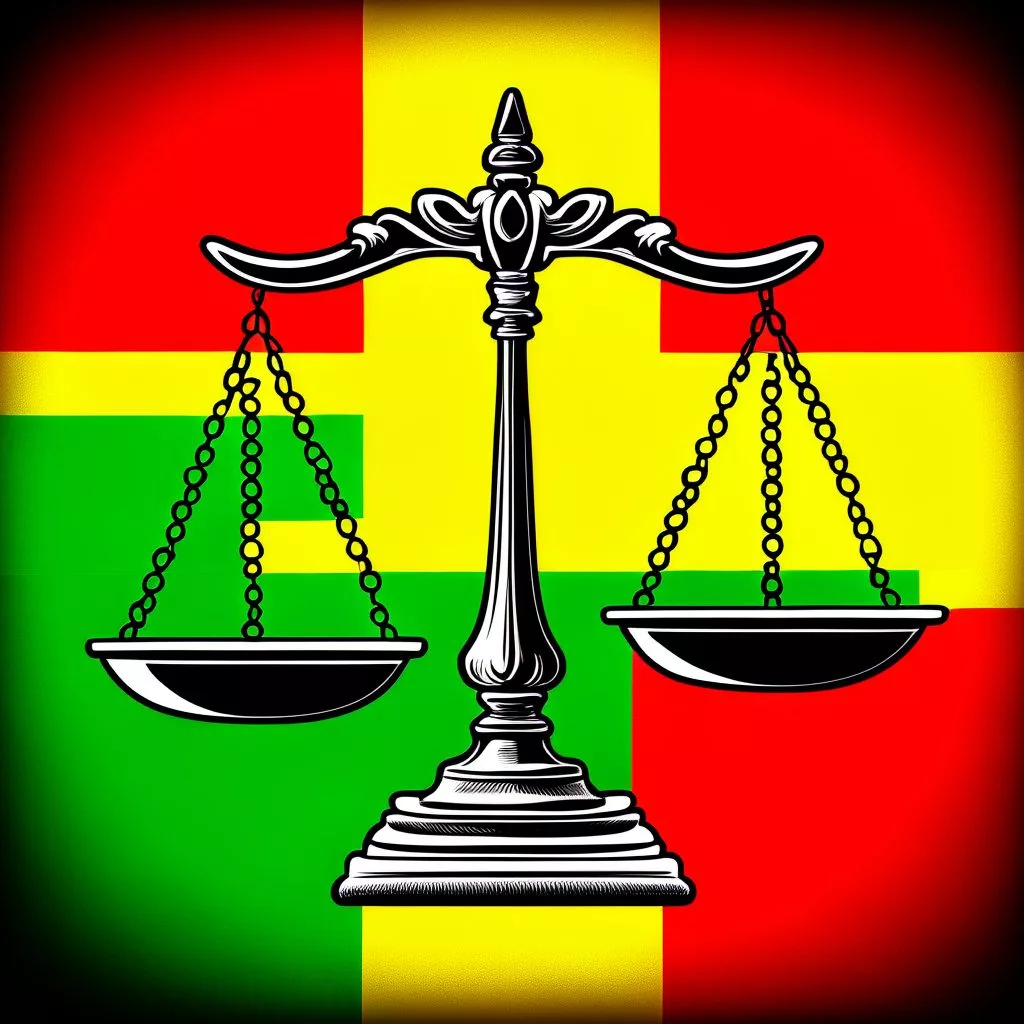South Africa is stepping up as a key player in global peace efforts. President Cyril Ramaphosa invited Ukrainian President Zelenskyy to visit, showing South Africa’s strong commitment to resolving conflicts through conversation. This invitation not only strengthens ties between South Africa and Ukraine, but also highlights the country’s desire to promote peace and cooperation around the world. Rooted in its own history of overcoming division, South Africa aims to be a voice for the Global South and a mediator in international disputes. As it navigates challenges and opportunities, South Africa is determined to leave a positive mark on the world stage.
What is South Africa’s role in global diplomacy?
South Africa plays a crucial role in global diplomacy by advocating for peace and multilateralism. President Cyril Ramaphosa’s invitation to Ukrainian President Zelenskyy exemplifies its commitment to resolving conflicts through dialogue, promoting international stability, and acting as a mediator for the Global South in international affairs.
Extending an Olive Branch: A New Chapter in Diplomacy
As global politics evolve with increasing complexities, South Africa stands out as a nation committed to fostering peace and mediation. In a landmark move, President Cyril Ramaphosa extended an invitation to Ukrainian President Volodymyr Zelenskyy for a state visit. This act represents more than just diplomatic courtesy; it signals a robust commitment from South Africa to play a vital role in international peacemaking. By welcoming Zelenskyy, South Africa demonstrates its desire to deepen ties with Ukraine while showcasing its broader diplomatic ambitions.
The announcement, made via social media, highlights Ramaphosa’s dedication to promoting dialogue between Russia and Ukraine. His actions are fueled by a hope for resolving the ongoing conflict that threatens international equilibrium. Ramaphosa’s invitation underscores South Africa’s unwavering support for an inclusive peace process, a sentiment warmly acknowledged by President Zelenskyy. The Ukrainian leader’s appreciation for South Africa’s backing of Ukraine’s sovereignty emphasizes the importance of cooperative diplomatic initiatives in achieving lasting peace.
This invitation follows a series of engagements between the two leaders at global forums like the United Nations General Assembly and the World Economic Forum. These interactions have laid the groundwork for a strengthening relationship between South Africa and Ukraine, founded on mutual respect and a shared pursuit of global harmony. Zelenskyy’s acceptance of the invitation underscores South Africa’s growing influence on the world stage as a potential agent of positive change.
Advocating Multilateralism in a Divided World
Amidst these diplomatic developments, South Africa is actively engaging with a broad spectrum of global challenges. At the recent G20 foreign ministers’ meeting in Johannesburg, President Ramaphosa called for reinforced multilateralism and adherence to international law. These remarks underscored the precarious state of global stability, threatened by rifts among major nations. Ramaphosa’s emphasis on the principles of the UN Charter reflects South Africa’s deep-seated belief in resolving conflicts through diplomacy and peaceful negotiation.
The call for multilateralism is all the more relevant given the numerous global conflicts, from Ukraine to the Democratic Republic of Congo, Sudan, and Gaza. While each conflict possesses unique complexities, they all share a common theme: significant human suffering and increased insecurity. Ramaphosa’s focus on these issues signals South Africa’s intention to contribute meaningfully to global peace efforts, reinforcing its potential as a key mediator in international affairs.
South Africa’s diplomatic strategies are informed by its own complex history and the post-apartheid era, which have instilled a profound appreciation for dialogue and reconciliation. Balancing domestic priorities with international responsibilities, South Africa often acts as a voice for the Global South in global discussions. This dual focus enhances its position as a regional leader and an advocate for fair global governance.
Drawing from History: South Africa’s Legacy of Mediation
South Africa’s endeavors in international diplomacy align with its historical traditions of peacemaking and conflict resolution. The nation frequently draws upon its experiences of overcoming entrenched divisions to offer valuable insights into resolving international disputes. This historical context enriches South Africa’s diplomatic narrative, adding depth to its role as a mediator on the global stage.
The country’s vibrant cultural scene also exemplifies its diplomatic ethos. Artistic expressions in South Africa, from music to visual arts, often mirror the complex interplay of tradition and modernity, providing a metaphor for its diplomatic engagements. These cultural platforms facilitate dialogue and understanding, fostering connections that transcend political and geographical barriers.
In an age where cultural diplomacy holds increasing significance, South Africa’s rich cultural heritage offers an additional dimension to its international relations. The potential for cultural exchanges with Ukraine, for instance, could pave the way for deeper mutual understanding and cooperation, enhancing the political and economic aspects of their relationship.
Embracing Opportunities and Overcoming Challenges
As South Africa navigates its path in international diplomacy, it faces both challenges and opportunities. The invitation to President Zelenskyy represents a strategic move within a broader effort to assert its influence and contribute to global peace initiatives. By positioning itself as a mediator, South Africa not only strengthens its bilateral relations with Ukraine but also reaffirms its commitment to multilateralism and peaceful conflict resolution.
In conclusion, South Africa’s invitation to Ukrainian President Volodymyr Zelenskyy marks a pivotal moment in its diplomatic journey. It reflects the country’s aspirations to be a significant player in global peace efforts and underscores its dedication to fostering dialogue and understanding. As the world closely observes, South Africa’s actions on the international stage will continue to shape its legacy as a champion of peace and diplomacy.
FAQ: South Africa’s Diplomatic Mission in Global Peace Efforts
What is South Africa’s role in global diplomacy?
South Africa plays a crucial role in global diplomacy by advocating for peace and multilateralism. The invitation extended by President Cyril Ramaphosa to Ukrainian President Zelenskyy exemplifies the country’s commitment to resolving conflicts through dialogue, promoting international stability, and acting as a mediator for the Global South in international affairs.
Why did President Ramaphosa invite Ukrainian President Zelenskyy for a state visit?
The invitation signifies a robust commitment from South Africa to play a vital role in international peacemaking. By welcoming Zelenskyy, South Africa aims to deepen ties with Ukraine while showcasing its broader diplomatic ambitions, especially in promoting dialogue between Russia and Ukraine.
How does South Africa’s history influence its current diplomatic strategies?
South Africa’s complex history, particularly its experience in overcoming division during the post-apartheid era, informs its diplomatic strategies. The nation has a profound appreciation for dialogue and reconciliation, which enhances its position as a mediator and voice for the Global South in global discussions.
What are some of the key global challenges South Africa is addressing?
Amidst ongoing global conflicts—from Ukraine to the Democratic Republic of Congo and Gaza—South Africa is actively engaging in discussions on multilateralism and adherence to international law. President Ramaphosa has emphasized the need for diplomatic solutions, reflecting the nation’s intention to contribute meaningfully to global peace efforts.
How does South Africa utilize cultural diplomacy in its international relations?
South Africa’s vibrant cultural scene, which includes music and visual arts, serves as a platform for dialogue and understanding in its diplomatic engagements. Cultural exchanges, such as those with Ukraine, can enhance mutual understanding and cooperation, complementing the political and economic aspects of their relationship.
What is the significance of South Africa’s commitment to multilateralism?
South Africa’s commitment to multilateralism is essential in a divided world, where global stability is under threat. By advocating for the principles of the UN Charter and emphasizing the importance of dialogue, South Africa reinforces its potential as a key mediator in international affairs, aiming to create a more stable and peaceful global environment.

